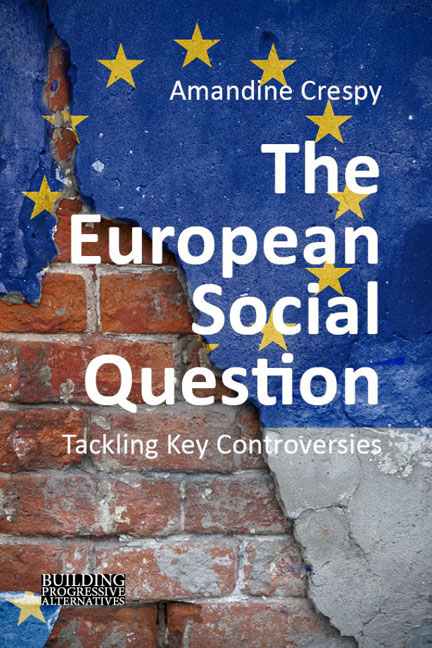Book contents
- Frontmatter
- Contents
- Acknowledgements
- Abbreviations and acronyms
- Dedication
- Introduction: “Social Europe” – irrelevant, catching up or dangerous?
- 1 What is the European social question?
- 2 Is the EU a key player in addressing social issues?
- 3 Are socially minded actors too weak in EU policy-making?
- 4 Is European social regulation a thing of the past?
- 5 Does liberalization undermine social cohesion?
- 6 Does the European social dialogue really protect European workers?
- 7 Does soft coordination support welfare states?
- 8 Is redistribution unconditional?
- 9 Is the EU fit for the social challenges of the twenty-first century?
- Conclusion: from the social question to the democratic question
- Index of CJEU judgments
- References
- Index
Introduction: “Social Europe” – irrelevant, catching up or dangerous?
Published online by Cambridge University Press: 20 December 2023
- Frontmatter
- Contents
- Acknowledgements
- Abbreviations and acronyms
- Dedication
- Introduction: “Social Europe” – irrelevant, catching up or dangerous?
- 1 What is the European social question?
- 2 Is the EU a key player in addressing social issues?
- 3 Are socially minded actors too weak in EU policy-making?
- 4 Is European social regulation a thing of the past?
- 5 Does liberalization undermine social cohesion?
- 6 Does the European social dialogue really protect European workers?
- 7 Does soft coordination support welfare states?
- 8 Is redistribution unconditional?
- 9 Is the EU fit for the social challenges of the twenty-first century?
- Conclusion: from the social question to the democratic question
- Index of CJEU judgments
- References
- Index
Summary
The European social question arises from a shared diagnosis among most scholars and (arguably) political and social actors that there is something wrong with the social dimension of European integration. In other words, the European Union (EU) exhibits a social deficit in the sense that its law and policies, the action of its institutions and its politics fall short in addressing the pressing social issues faced by individual citizens and national societies. Although Europe remains one of the most developed and wealthiest regions in the world, and the birthplace of institutionalized welfare states, one in five people – over 92.4 million or 21.1 per cent of the population – are still at risk of poverty in the 27 member states of the EU. And inequality levels have remained virtually static since the 2008 crisis. A total of 19.4 million children – representing 23.1 per cent of the population – are at risk of poverty across the EU, an exceedingly high number for developed country standards (De Schutter 2021).
Against this background, this book addresses the following overarching question: does the EU serve to enhance social cohesion at the scale of the con¬tinent?1 Any attempt to answer this question almost inevitably begs for a second, related interrogation about whether addressing the social question should be the role of the EU. In order to guarantee a satisfactory level of social cohesion moving forward, should the competences of the EU in the field be enhanced or, on the contrary, curtailed? To be clear, the European social question is therefore not about whether European societies are suffering from serious social issues (the assumption being that they do), but whether the EU does, can or should do something about it. Surely social cohesion has been at the heart of the very project of regional integration ever since its origins after the Second World War. In fact, claims of a need for a stronger “Social Europe” have been a key compo¬nent serving to legitimize the unification of the continent. Economic integration, and the intertwined European social policy, have been presented by European elites as a strategy to guarantee ever-higher levels of welfare for all Europeans.
- Type
- Chapter
- Information
- The European Social QuestionTackling Key Controversies, pp. 1 - 12Publisher: Agenda PublishingPrint publication year: 2022



